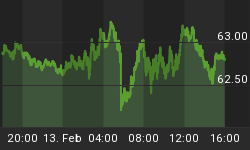Angering Spain by seizing and nationalizing a majority of Repsol's shares in YPF and ramping up the rhetoric over the Falkland Islands as exploration deals promise to make the territory a major oil player overnight, Argentina is making few friends in the fossil fuels industry these days. Sam Logan, owner of the Latin America-focused private intelligence boutique, Southern Pulse, speaks to Oilprice.com about the politics of populism behind Argentina's energy aggression.
Samuel Logan is the founding partner of Southern Pulse, a private human intelligence organization focused on investigating security, politics, energy, and black market economics in Latin America. Southern Pulse investigators operate from hubs in Mexico, El Salvador, Colombia, Brazil, and Chile to leverage Southern Pulse's HUMINT network, unique access, and deep understanding of the region to mitigate risk for public and private sector clients with exposure to political, security, financial, or legal risk in Latin America.
In the interview Sam Talks about:
- Why Carlos Slim bought shares in YPF
- Why Argentina won't take any definitive action in the Falklands
- Why things will get worse for energy firms in Argentina
- Argentina's brewing political crisis
- Argentina's future relationship with Spain
Interview conducted by Jen Alic of Oilprice.com
Oilprice.com: In April, Argentina nationalized Spanish Repsol's shares in YPF and now shareholders have approved a move that could see a sharp cut in dividend payouts and a redirection of profits to investment. This is in line with President Cristina Fernandez de Kirchner's justification for nationalizing Repsol's shares in YPF. She had accused Repsol of fleecing YPF by using too much of its profits for shareholder benefits rather than investing in exploration and turning Argentina into an importer of fuel. Will this essentially political and economic populism help or harm Argentina?
Sam Logan: While there are certainly short-term gains to be realized, the long-term effects of the Argentina-Spain relationship and Argentina's relationship with other oil majors will result in significant setbacks in investment confidence and overall appetite for working with the Argentine government.
Oilprice.com: What we would like to know is what is missing from this story and what role certain vested interests, such as the Eskenazi family (minority YPF shareholders brought on by the Kirchners who later defaulted on their Repsol loans) and Carlos Slim, have played in the YPF saga.
Sam Logan: The Eskenazi family really took a hit from this action. When brought on board by the Kirchners, they took out loans to buy their stakeholder position in YPF. The payback on those loans was based partially on dividend payments. So the Kirchner nationalization and subsequent decision on dividends has left them in default. Carlos Slim, who got 8% of YPF when Eskenazi defaulted, was simply making a personal investment, not a political statement. When you're the world's richest man, it's not particularly risky to make low-value purchases and hold them long term to see if they pan out.
Oilprice.com: Populism is also at play in Argentina's renewed push over the Falkland Islands. Last week, Premier signed a $1 billion deal develop Rockhopper Exploration's Sea Lion field in the Falkland Islands and Argentina is threatening to sue Premier for illegal activity. How will this play out for Argentina, and for big oil? What can we expect in the near- medium-term?
Sam Logan: The Argentine lawsuit will move forward and the UK firms will ignore the action, but BP could get caught in the crossfire as a UK firm with holdings in Argentina. Already we've seen Kirchner's administration apply pressure to BP.
Oilprice.com: How are oil and the Falklands used as symbols of national sovereignty in Argentina?
Sam Logan: The Falklands have long been used as symbols in Argentina, and this is an issue that crosses party lines so there is more political currency available for the Falklands issue across the Argentine political spectrum. There could be more saber rattling, but at this point I don't see the Argentine government taking definitive action.
Oilprice.com: Would you agree that at the heart of the matter is Argentina's misguided energy policy, in place since 2003?
Sam Logan: It's not just energy. This is more about Argentina's overall economic policies and the steadily increasing economic pressures the Kirchner government is facing. Inflation, currency controls and price controls on gasoline all play a huge role in this market, which extends well beyond the recent actions with YPF. Let's not forget that until recently Argentina was a natural gas exporter. Due to a long-term political negligence and mismanagement of infrastructure, Argentina is dependent on multinational energy firms to develop deposits and other known reserves - not to mention the potential for hydraulic fracturing. Ultimately, the irrational behavior Argentina has shown against multinational energy firms underscores a brewing political crisis that shows little to no sign of abatement in the near-term. It's likely to get worse for energy firms in Argentina before it gets better.
Source: http://oilprice.com/Interviews/The-Energy-Showdown-in-Argentina-Interview-with-Sam-Logan.html
Interview by Jen Alic of Oilprice.com
















